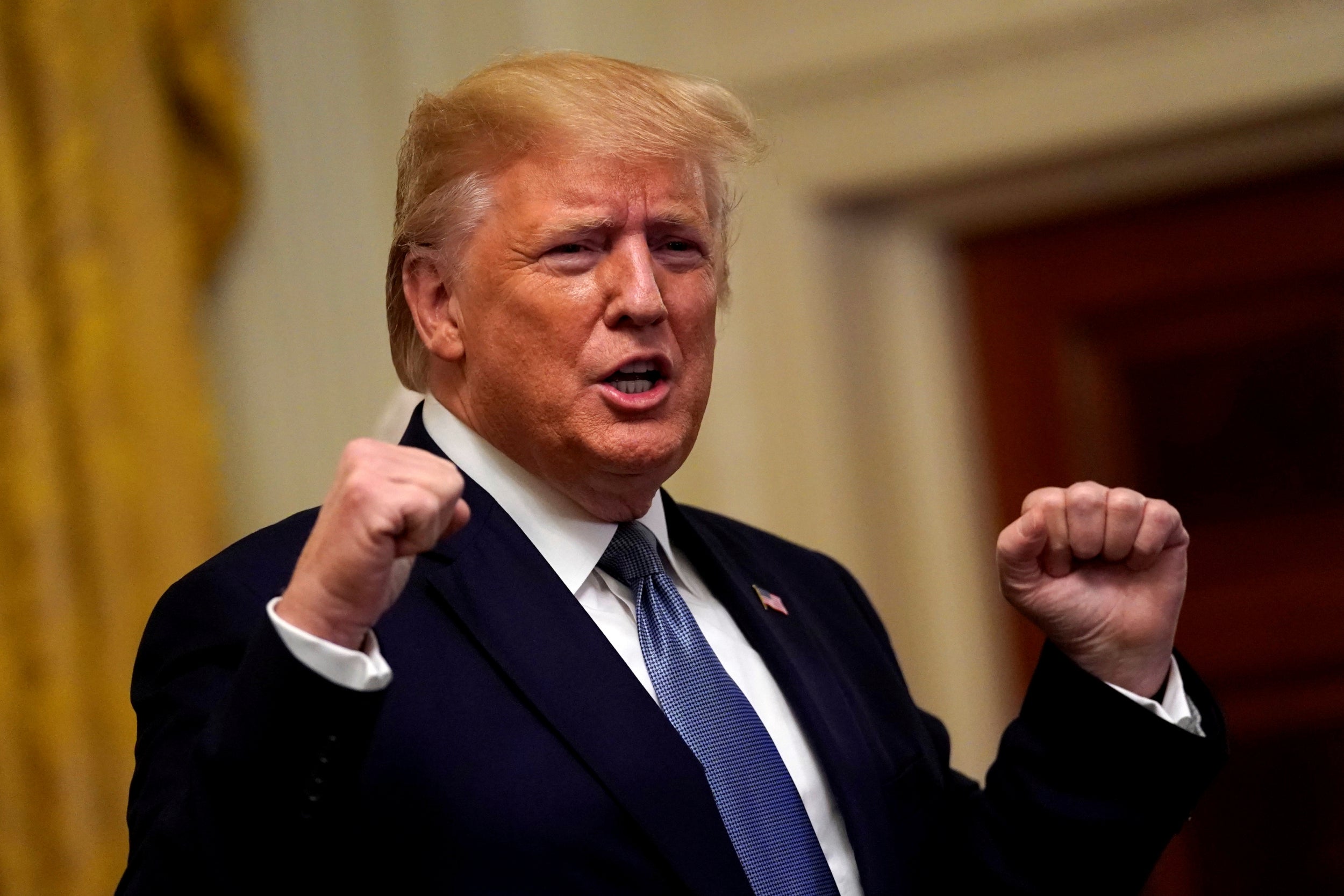Trump is still trying to block us from seeing his tax returns. As Scaramucci told me, that's a constitutional problem
The president has now made it abundantly clear that he doesn't understand why he can't treat the country like his personal business


Why would the Department of Justice want to block a New York City prosecutor from using a subpoena?
The answer? Because the company is owned by the President of the United States.
Today, DOJ officials asked a federal judge to temporarily block a subpoena for Donald Trump’s tax returns, which was made in order to further an investigation into whether anyone at that company had violated New York laws.
Since the Watergate scandal, major party presidential candidates have released their tax returns to give the public some concept of their financial condition — in other words, how much money they have and where it came from. This has been the case for wealthy politicians like Presidents George H W Bush and his son George W Bush — whose familial wealth went back several generations through various trusts — and those who came into politics without much wealth at all, like President Barack Obama, who reportedly finished paying off his undergraduate and law school loans just prior to being elected to the Senate in 2004.
Another presidential habit dating back to the post-Watergate 1970s is that of using a blind trust to shield a president's knowledge of his own assets from himself to protect him — and the country — from conflicts of interest. This was done even when the likelihood of such a conflict was small, as when President Jimmy Carter put his family's peanut farm into a blind trust.
Of course, the idea that the person who'd been elected to serve a four-year term as America's head of state would retain a financial stake in a private enterprise with financial interests in many different corners of the world was unheard of for the first 230 years of the American republic. But, as the 45th President is fond of saying, no president has done what he has done.
Treasury Secretary Steve Mnuchin says the battle for President Trump's tax returns might ultimately have to be decided in court
Since he announced his candidacy for president in 2015, Trump has resisted any and all attempts to give the public an insight into his financial history. Of paramount importance to this information blackout has been the continued sequestering of his tax records from public view.
This lack of transparency has persisted in the face of multiple investigations into his presidential campaign and the conduct of his associates, sending two of them — his onetime campaign manager, and his longtime personal attorney — to federal prisons.
One of the main reasons it has persisted is because unlike previous presidents, Trump's failure to divest himself of his pre-presidential business interests has combined with his inability to distinguish his own interests from that of the United States. This week, he has put the Justice Department in the position of arguing to protect the former because he cannot separate it from the latter.
On three occasions now, Trump's private attorneys have filed lawsuits to prevent disclosure of his tax returns to parties authorized to receive them under nominally lawful processes. And in each of those three cases, the Justice Department — led by Attorney General William Barr — has intervened, most recently by filing a "statement of interest" urging a New York federal judge to take time to consider “the weighty constitutional issues involved" when deciding whether the accountants for the president's private business must obey a New York state grand jury's subpoena for the private business' tax records.
This time, the "weighty constitutional issues" raised by Trump's private attorneys centered on their argument that a sitting president "cannot be subject to criminal process, for any conduct of any kind, while he is serving as President."
That argument, District Judge Victor Marrero wrote, is "repugnant to the nation's governmental structure and constitutional values," stressing that neither the president nor his family is above the law.
Marrero is not the first judge to rule against a claim that the President is immune from judicial process. During the presidency of Bill Clinton, the Supreme Court unanimously ruled that he could be subject to a civil lawsuit for conduct which predated his term in office.
But under Trump, the claims that various immunities and privileges shield the President from being held accountable, whether by Congress or a court, are made with stunning regularity. Indeed, they are often made with the support of the Justice Department, which, under William Barr, has been criticized as acting more like Trump's personal law firm than a cabinet department responsible for upholding the law.
According to Anthony Scaramucci, a longtime Trump ally-turned-critic who I spoke to earlier today, this is because Trump has "hollowed out" the executive branch to the point where it is largely run by people who respond to his whims and not much else.
In the case of the Attorney General, the former White House Communications Director, the obsequiousness and partisan defenses of Trump exhibited in recent months are evidence of a constitutional crisis that will require an amendment to ensure the DOJ's independence.
"It definitely needs some kind of ring-fencing and separation from the presidency," Scaramucci told me.
In particular, he singled out the DOJ's Office of Legal Counsel for criticism.
"It needs to represent the institution of the presidency and not the president himself," he said, adding that James Madison would be "rolling in his grave" over the "tremendous damage" Trump has inflicted upon the nation's constitutional checks and balances.
The founders "did not think...that there would be a group of partisans who would accept lawlessness on the part of the chief executive," he added. "That's another course correction that needs to be made in the constitution."

Join our commenting forum
Join thought-provoking conversations, follow other Independent readers and see their replies